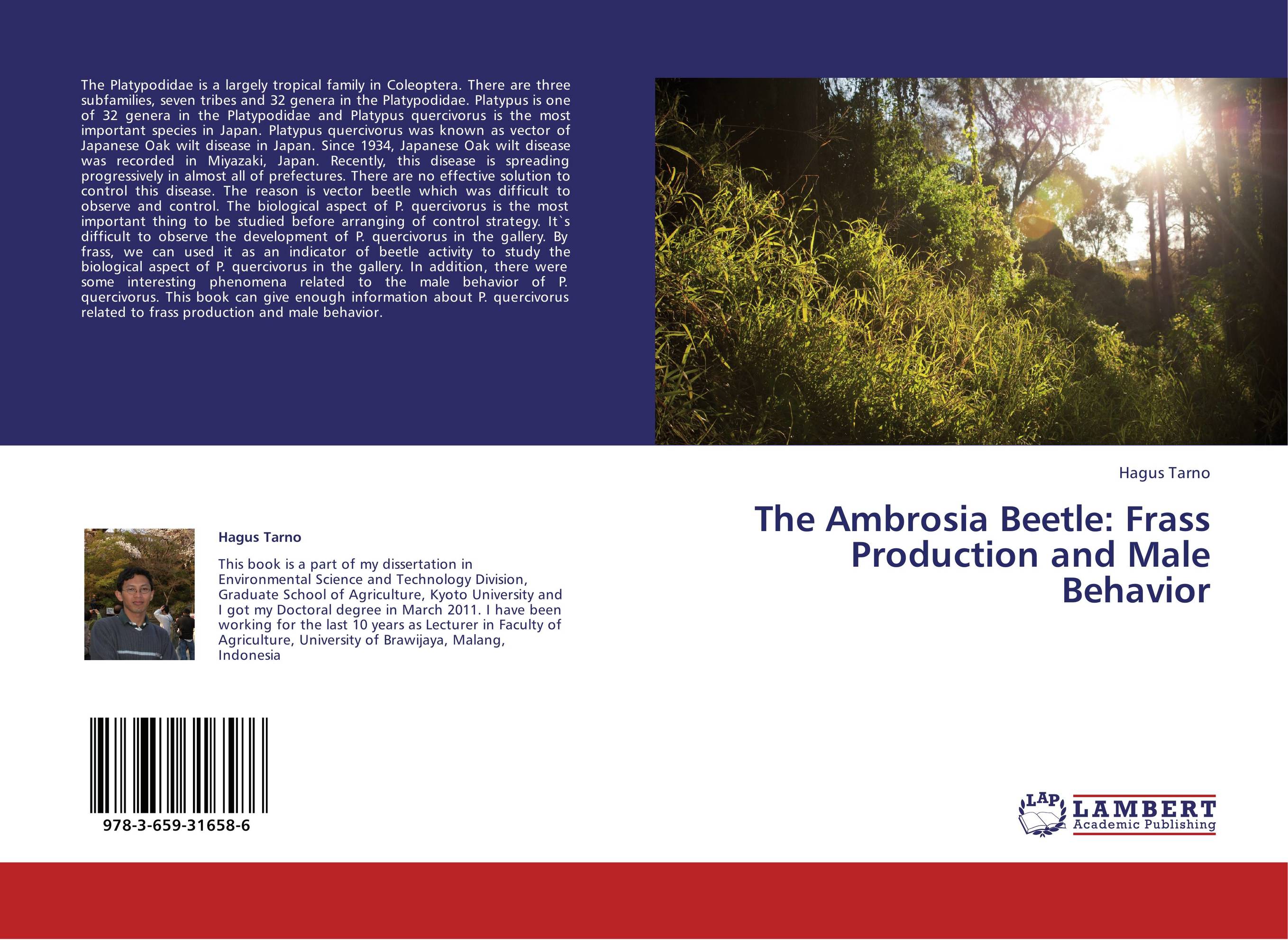| Поиск по каталогу |
|
(строгое соответствие)
|
- Профессиональная
- Научно-популярная
- Художественная
- Публицистика
- Детская
- Искусство
- Хобби, семья, дом
- Спорт
- Путеводители
- Блокноты, тетради, открытки
The Ambrosia Beetle: Frass Production and Male Behavior.

В наличии
| Местонахождение: Алматы | Состояние экземпляра: новый |

Бумажная
версия
версия
Автор: Hagus Tarno
ISBN: 9783659316586
Год издания: 2013
Формат книги: 60×90/16 (145×215 мм)
Количество страниц: 88
Издательство: LAP LAMBERT Academic Publishing
Цена: 30784 тг
Положить в корзину
Позиции в рубрикаторе
Отрасли экономики:Код товара: 117099
| Способы доставки в город Алматы * комплектация (срок до отгрузки) не более 2 рабочих дней |
| Самовывоз из города Алматы (пункты самовывоза партнёра CDEK) |
| Курьерская доставка CDEK из города Москва |
| Доставка Почтой России из города Москва |
Аннотация: The Platypodidae is a largely tropical family in Coleoptera. There are three subfamilies, seven tribes and 32 genera in the Platypodidae. Platypus is one of 32 genera in the Platypodidae and Platypus quercivorus is the most important species in Japan. Platypus quercivorus was known as vector of Japanese Oak wilt disease in Japan. Since 1934, Japanese Oak wilt disease was recorded in Miyazaki, Japan. Recently, this disease is spreading progressively in almost all of prefectures. There are no effective solution to control this disease. The reason is vector beetle which was difficult to observe and control. The biological aspect of P. quercivorus is the most important thing to be studied before arranging of control strategy. It`s difficult to observe the development of P. quercivorus in the gallery. By frass, we can used it as an indicator of beetle activity to study the biological aspect of P. quercivorus in the gallery. In addition, there were some interesting phenomena related to the male behavior of P. quercivorus. This book can give enough information about P. quercivorus related to frass production and male behavior.
Ключевые слова: Ambrosia Beetle, Frass, Insect Behavior, Japanese Oak Wilt, Platypus quercivorus



